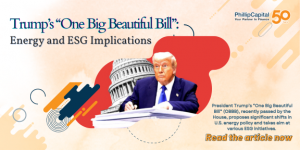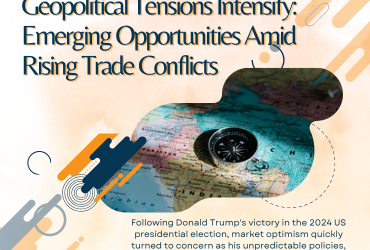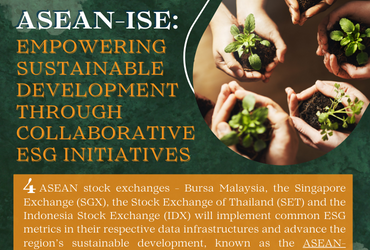
President Trump’s “One Big Beautiful Bill” (OBBB), recently passed by the House, proposes significant shifts in U.S. energy policy and takes aim at various environmental, social, and governance (ESG) initiatives. While the bill champions traditional energy sectors, it raises concerns among clean energy advocates and ESG proponents.
Impact on Clean Energy and ESG
A major component of the bill is the rollback of numerous clean energy tax credits introduced under the Inflation Reduction Act. It eliminates or reduces incentives for electric vehicles, residential solar, and clean fuels. For example, the popular 30% federal tax credit for rooftop solar would be removed, dealing a major blow to the solar sector.
These changes could derail billions in renewable energy investments and threaten job creation across the industry. In states leading in renewable adoption, such as Texas and Virginia, stakeholders warn that the proposed cuts could hinder long-term clean energy progress.
Clean energy industry leaders have criticized the bill as a step backward, arguing it not only risks stalling climate action but also damages U.S. leadership in green technology. Concerns are rising that scaling back support for ESG-aligned industries could slow innovation and reduce the country’s competitiveness in the global energy transition.
Boost for Traditional Energy
On the other hand, the bill is being celebrated by traditional energy players. It includes expanded lease sales and streamlined permitting processes, aiming to accelerate domestic oil and gas production. These moves are framed as essential for reinforcing U.S. energy security and reducing reliance on foreign energy sources.
Supporters argue that favoring fossil fuel development over subsidies for renewables will lead to lower energy prices, more jobs in legacy energy sectors, and stronger economic growth. This aligns with the broader “America First” economic framework emphasized by the Trump administration.
Market Reactions and Forward Look
Financial markets responded quickly to the bill’s progression. Shares of clean energy companies saw immediate declines, reflecting concerns over lost subsidies and weakened demand. Conversely, traditional energy stocks and industrial players with exposure to fossil fuels have seen increased investor interest.
The bill now heads to the Senate, where debates continue over its long-term fiscal and sectoral impacts. For now, energy markets remain cautious, recognizing that the final version of the legislation could shift depending on political negotiations.
In summary, Trump’s “One Big Beautiful Bill” represents a turning point in U.S. energy and ESG policy. Its support for traditional energy and rollback of clean energy incentives could reshape the investment landscape, signaling a pivot back to fossil fuel dominance. As this legislation moves forward, balancing economic priorities with long-term environmental goals will remain a central challenge.
Our Thoughts
We reaffirm that Malaysia should remain steadfast in leveraging its inherent strengths in ESG development. While the Trump’s policies and regulatory rollbacks may eventually influence global investment strategies, corporate governance, and business practices in the realm of ESG, we believe the direct impact on Malaysia will not be immediate. Malaysia should continue prioritizing homegrown policies and initiatives such as the development of green sukuk and the execution of the National Energy Transition Roadmap (NETR). By doing so, Malaysia can drive sustainable economic growth, attract high-quality investments, and strengthen its leadership in green finance. Staying committed to our local ESG agenda will not only foster resilience but also position Malaysia as a forward-looking, environmentally responsible economy on the global stage.
Identify investment opportunities – Phillip Managed Account for Retirement (PMART) and Phillip Managed Account (PMA) ESG
In line with the nation’s goal towards sustainability, Phillip Capital Management has integrated ESG factors that we attest as material and relevant for a company’s financial performance and long-term sustainability into our investment decision-making process. These include but not limited to ESG ratings by established index, environmental considerations (climate change, natural resources preservation, pollution & waste), social considerations (health & safety, community engagement, employee relations) and governance considerations (board independence, transparency & disclosure, shareholder rights).
Separately, PCM offers PMART and PMA ESG, a discretionary portfolio that invests in stocks with high ESG ratings from the F4GBM and F4GBMS Indices. There are both conventional and Shariah options available. PMART and PMA ESG is suitable for investors who want to optimise the risk-adjusted return by constructing a diverse sustainable portfolio of ESG companies. Exhibits 1-4 show the performance for PMART ESG Conventional and Shariah.
Exhibit 1: Phillip PMART ESG Conservative Portfolio Performance
| YTD | 1Y | 2Y | 3Y | 5Y | |
|
Phillip PMART ESG Conservative Portfolio |
-5.39% |
0.74% |
|||
| F4GBM | -8.81% | -3.03% |
Exhibit 2: Phillip PMART ESG Aggressive Portfolio Performance
|
|
YTD | 1Y | 2Y | 3Y | 5Y |
|
Phillip PMART ESG Aggressive Portfolio |
-5.39% |
0.74% |
|||
| F4GBM | -8.81% | -3.03% |
Exhibit 3: Phillip PMART ESG Shariah Conservative Portfolio Performance
|
|
YTD | 1Y | 2Y | 3Y | 5Y |
|
Phillip PMART ESG Shariah Conservative Portfolio |
-3.80% | 1.28% | |||
| F4GBMS | -9.95% |
-6.39% |
Exhibit 4: Phillip PMART ESG Shariah Aggressive Portfolio Performance
|
|
YTD | 1Y | 2Y | 3Y |
5Y |
|
Phillip PMART ESG Shariah Aggressive Portfolio |
-5.65% |
-2.27% |
|||
|
F4GBMS |
-9.95% |
-6.39% |
Source: PCM, 30 April 2025, link
Please click on the link to learn more or email us at cse.my@phillipcapital.com.my if you require any further information.
Disclaimer:
The information contained herein does not constitute an offer, invitation or solicitation to invest in Phillip Capital Management Sdn Bhd (“PCM”). This article has been reviewed and endorsed by the Executive Director (ED) of PCM. This article has not been reviewed by The Securities Commission Malaysia (SC). No part of this document may be circulated or reproduced without prior permission of PCM. This is not a collective investment scheme / unit trust fund. Any investment product or service offered by PCM is not obligations of, deposits in or guaranteed by PCM. Past performance is not necessarily indicative of future returns. Investments are subject to investment risks, including the possible loss of the principal amount invested. Investors should note that the value of the investment may rise as well as decline. If investors are in any doubt about any feature or nature of the investment, they should consult PCM to obtain further information including on the fees and charges involved before investing or seek other professional advice for their specific investment needs or financial situations. Whilst we have taken all reasonable care to ensure that the information contained in this publication is accurate, it does not guarantee the accuracy or completeness of this publication. Any information, opinion and views contained herein are subject to change without notice. We have not given any consideration to and have not made any investigation on your investment objectives, financial situation or your particular needs. Accordingly, no warranty whatsoever is given and no liability whatsoever is accepted for any loss arising whether directly or indirectly as a result of any persons acting on such information and advice.






